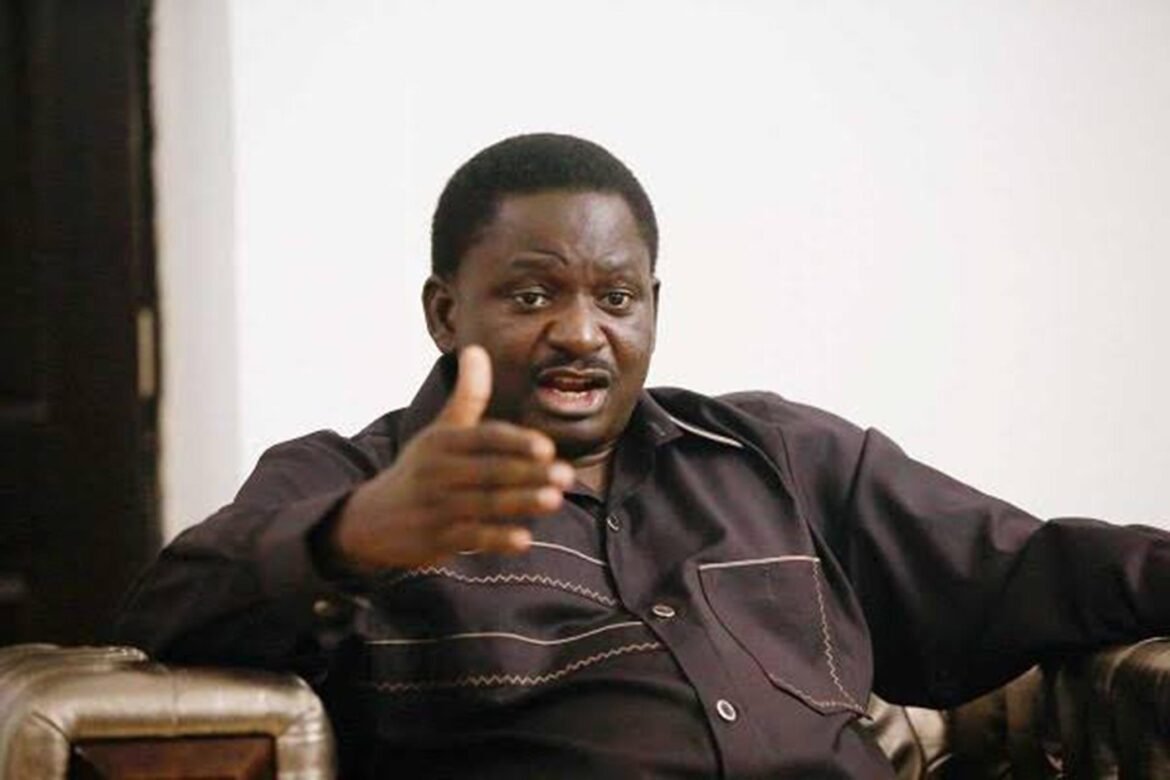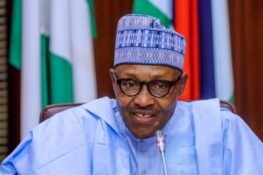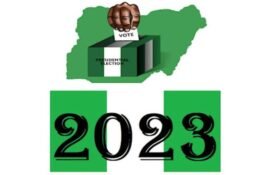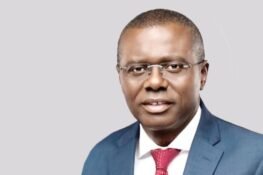I read “How Buhari averted Nigeria’s road to Venezuela” by the Special Adviser on Media and Publicity to President Mohammadu Buhari, Mr. Femi Adesina.
It was a good essay, free-flowing, descriptive and alluring.
It was also just an open display of commitment and loyalty that could only attract those already bewitched, but turn off those waiting to be persuaded.
Although one should expect someone in Mr. Adesina’s role to be a good public relations dispenser for President Buhari, it is distasteful for him to use the Trumpian tactic of alternative facts.
By using Venezuela as a contrast to President Buhari’s achievements, the distinguished journalist, who I personally know and respect, has indulged in journalistic dark arts.
Dark arts describe a rhetorical technique of using crafted scenarios to exploit people’s biases, with the intention of persuading, manipulating and deceiving the audience into irrationally accepting beliefs that they would otherwise have considered crazy.
Dark arts come in many forms. Some even use technology these days, but this one is a classic, in its use of simple words and pictures of the mind to seduce and deceive.
And that is exactly why it is worthy of dissection.
The leading journalist’s narration reeks of the “I alone can fix it” chauvinistic attitude of the US President, Mr. Donald Trump.
Although one should expect someone in Mr. Adesina’s role to be a good public relations dispenser for President Buhari, it is distasteful for him to use the Trumpian tactic of alternative facts
It is daring to present this Nigerian administration as messianic. It is also abhorrent.
Mr. Adesina, who I see as a respected journalist, did not rise to the challenge of a great communicator that he is, by failing to appreciate that in the age of search engines, Google can unearth loads of information within minutes.
Let’s be clear: I am not accusing the presidential adviser of lying in his widely circulated article.
I have no evidence to contradict the falling prices of fertiliser, the food production ramp up in northern Nigeria and the results of border lockdowns.
These are possibly incontrovertible achievements of the administration.
What needs to be tackled is the scarcity of facts, surplus of praise and narrowness of his argument.
Mr. Adesina said, “We avoided the trip to Caracas, because a man called Muhammadu Buhari came.”
What a boast!
Why did he pick Venezuela among all nation’s that had been naturally blessed with oil?
It had to be because Venezuela is an easy target; whose symptoms, though similar, had different root causes.
The presidential adviser carefully avoided a focus on UAE, Saudi Arabia, Iran, Kuwait, Mexico, Brazil, Norway and Qatar, places where petro-dollar has been used wisely to develop.
For a while, let us stay on Venezuela for the sake of argument.
Are they in their present predicament because of the lack of a leader like Buhari? Or, they in trouble for some other reasons?
Since President Mohammadu Buhari came to power in 2015, Nigeria’s economy has shrunk and failed to recover
Nigeria is being compared to a nation that has not known peace for nearly a decade.
Venezuela has been in a social and economic spiral since 2012, which was exacerbated when President Nicolás Maduro and the opposition Juan Guaidó forced a power tussle in 2018.
Venezuela is unstable and hardly has a recognizable government today.
Before Maduro, Hugo Chávez, lavished the nation’s wealth on the poor while engaged in an ideological war against the West.
As the economy began to shake, even when the oil market was still strong, Chávez’s personal health also declined.
By the time he died, the economy, reliant on petroleum, was fractured.
Chávez’s may have had a good intention, but his singular focus on reducing Venezuela’s huge levels of inequality through socialist policies was the nation’s undoing.
Everything went well initially, as long as there was oil wealth, and Venezuela reached heights that Nigeria could only dream of.
As with most socialist entrapments, inefficient economic policies, such as price and foreign currency controls, created productivity issues, as businesses crumbled when they could not make a profit. That started as early as 2003.
US sanctions on the Venezuelan oil sector eventually caused the country to unravel quickly.
The drop in petroleum prices was just what such a weak economy needed in order to capitulate.
Although there were some similarities in economic policies and the levels of corruption, it was disingenuous to compare Venezuela’s problem to Nigeria’s.
By the time President Buhari came to power in 2015, more than five million Venezuelans had already left the country in search of greener pastures.
While Nigeria has enjoyed relative social and political stability, Venezuela has been a nation in a turmoil, never at rest to produce wealth for its people.
Even if Venezuela had policies like that of Mr. Buhari, the political environment to nurture them has not existed for a while.
Is that the country that Mr. Adesina feels Nigeria should be compared to in order to appreciate the administration under which he serves?
It is like measuring oneself against the most unfortunate neighbour on one’s block.
When you do that, you give yourself a part on the back for having achieved little.
Why pick the worst to measure yourself against, instead of the best or equal?
It smacks of alternative facts.
Critics have said that alternative facts are not facts; they are just a way of embellishing the truth for political survival.
I am not asserting that President Buhari has been a disaster to Nigeria.
Not at all.
He has recorded modest achievements. However, he has not been a messiah too.
He has over-promised and under-delivered.
Nigeria has constantly ranked among the worst on the UN Human Development Index, at between 152 to 157 among nations
There are certain facts in the open which the Special Adviser needs to be reminded of, when his closeness to power may not have allowed him to pay attention.
Since President Mohammadu Buhari came to power in 2015, Nigeria’s economy has shrunk and failed to recover.
The World Bank’s 2019 country review of Nigeria states: “Since 2015, economic growth remains muted. Growth averaged 1.9% in 2018 and remained stable at 2% in the first half of 2019.”
On agriculture, the administration’s flagship achievement, the Word Bank states: “Agricultural growth remains below potential due to continued insurgency in the Northeast and ongoing farmer-herdsmen conflicts. …Growth is too low to lift the bottom half of the population out of poverty.
“The weakness of the agriculture sector weakens prospects for the rural poor, while high food inflation adversely impacts the livelihoods of the urban poor.”
Nigeria has constantly ranked among the worst on the UN Human Development Index, at between 152 to 157 among nations.
The world bank concluded in its report that “the country continues to face massive developmental challenges, which include the need to reduce the dependency on oil and diversify the economy, address insufficient infrastructure, and build strong and effective institutions, as well as governance issues and public financial management systems.”
What then is Femi Adesina celebrating?
If he is proud of this scathing assessment by the Word’s biggest bank, he is either disconnected from reality or is playing with the truth.
He is employing dark arts when we know that the fingers of President Buhari has been on Nigeria’s oil button since the 1970s.
He was the first man in charge when the Nigerian National Petroleum Corporation was created in 1977.
He was also the Federal Commissioner for Petroleum and Natural Resources.
I won’t take anything from the President, but I was old enough to watch Fela Anikulapo-Kuti fight for details of the alleged missing $2.8bn under Buhari’s charge.
For a while, the president was totally in charge of Nigeria as Head of State.
After he was removed, he saw it wise to serve as the Chairman of the Petroleum Trust Fund (PTF) under the man who ousted him, General Sani Abacha. He oversaw the spending of oil money.
He has also been the president for five years, a second time around during which he has held on to the petroleum portfolio.
Who in Nigeria has had more control of the oil money than President Buhari?
And why is our nation an ugly version of UAE?
Mr. Adesina should not rub it in our face again. When the story of how Nigerians leaders failed their people is written, his principal will be in the Hall of Infamous.
I disagree further.
Rather than Harry Belafonte’s Matilda, Nigeria and Venezuela will be headed to Dubai singing Bob Marley’s Rivers of Babylon.







